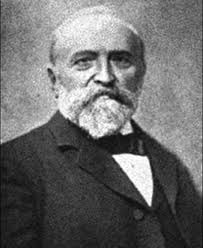
Rudolph Simonsen
Unsurprisingly, the format of the arts competitions was inconsistent and occasionally chaotic. And while a stopwatch or tape measure could quickly determine a gold medal performance on the track, things were naturally more subjective in the world of arts. The music competition at the 1924 Paris Olympiad assembled a vast panel of 43 judges, including Vincent D’Indy, Stravinsky, Bartók and Ravel. Coubertin urged competitors to “study the main rhythms of athletics,” but after much discussion and wrangling by jury members, no medals were awarded. The only award given at the 1928 Games was a bronze medal to Danish composer Rudolph Hermann Simonsen, who later became the head of the Royal Danish Academy of Music. And the most prominent Olympic musical competitor, Josef Suk only managed to earn silver in 1932. With judges seemingly hesitant to award medals, the new classification of “Honourable Mention” was introduced. Intended as a springboard for up and coming young composers, it predictably failed to attract the big names. Very few of the names of prize-winning or honorably mentioned composers are familiar today, and much of this award winning Olympic music remains unrecorded. Now here is a worthwhile Naxos recording project, don’t you think?
Rudolph Simonsen: Symphony No. 2 “Hellas”




